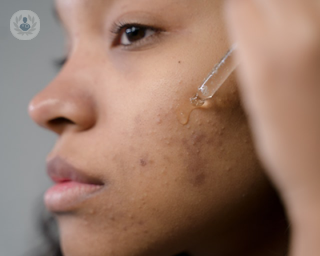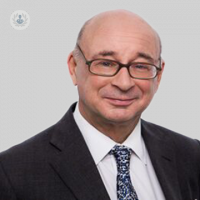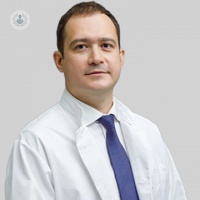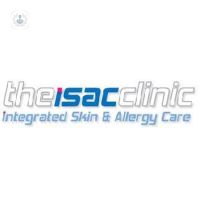What is clinical dermatology?
Dermatology is the branch of medicine that deals with the diagnosis and treatment of skin, hair, and nail disorders. Clinical dermatology is a specialised field of dermatology that focuses on the diagnosis and management of skin diseases.
The skin is the largest organ of the body and is composed of three layers: the epidermis, dermis, and subcutaneous tissue. The epidermis is the outermost layer of the skin and provides a barrier against the environment. The dermis is the middle layer of the skin and contains blood vessels, nerves, and hair follicles. The subcutaneous tissue is the deepest layer of the skin and contains fat cells.

What are the most common skin disorders?
There are numerous skin disorders that can affect people of all ages. Some of the most common skin disorders include acne, eczema, psoriasis, rosacea, and skin cancer. Acne is a skin condition that occurs when hair follicles become clogged with oil and dead skin cells. Eczema is a chronic skin condition that causes red, itchy, and inflamed skin.
Psoriasis is a chronic autoimmune condition that causes thick, scaly patches on the skin. Rosacea is a chronic skin condition that causes redness, flushing, and visible blood vessels on the face. Skin cancer is a type of cancer that develops in the skin cells.
How are skin disorders diagnosed and treated?
The diagnosis of skin disorders is based on a thorough medical history, physical examination, and laboratory tests. Treatment options for skin disorders depend on the type and severity of the condition. Some common treatment options include topical medications, oral medications, light therapy, and surgery.
11-13-2012 09-16-2024Clinical dermatology
Professor Chris Bunker - Dermatology
Created on: 11-13-2012
Updated on: 09-16-2024
Edited by: Conor Lynch
What is clinical dermatology?
Dermatology is the branch of medicine that deals with the diagnosis and treatment of skin, hair, and nail disorders. Clinical dermatology is a specialised field of dermatology that focuses on the diagnosis and management of skin diseases.
The skin is the largest organ of the body and is composed of three layers: the epidermis, dermis, and subcutaneous tissue. The epidermis is the outermost layer of the skin and provides a barrier against the environment. The dermis is the middle layer of the skin and contains blood vessels, nerves, and hair follicles. The subcutaneous tissue is the deepest layer of the skin and contains fat cells.

What are the most common skin disorders?
There are numerous skin disorders that can affect people of all ages. Some of the most common skin disorders include acne, eczema, psoriasis, rosacea, and skin cancer. Acne is a skin condition that occurs when hair follicles become clogged with oil and dead skin cells. Eczema is a chronic skin condition that causes red, itchy, and inflamed skin.
Psoriasis is a chronic autoimmune condition that causes thick, scaly patches on the skin. Rosacea is a chronic skin condition that causes redness, flushing, and visible blood vessels on the face. Skin cancer is a type of cancer that develops in the skin cells.
How are skin disorders diagnosed and treated?
The diagnosis of skin disorders is based on a thorough medical history, physical examination, and laboratory tests. Treatment options for skin disorders depend on the type and severity of the condition. Some common treatment options include topical medications, oral medications, light therapy, and surgery.


Acne FAQs: Ask an expert
By Dr Ophelia Veraitch
2024-12-14
The unsightly appearance of acne can seriously affect a person's confidence and mental wellbeing. To discuss treatment options and the causes behind acne, we invited leading consultant dermatologist Dr Ophelia Veraitch to answer frequently asked questions about the skin condition. See more
Experts in Clinical dermatology
-
Dr Jackie Crawford
DermatologyExpert in:
- Clinical dermatology
- Skin allergies
- Food allergies
- Paediatric dermatology
- Allergic contact dermatitis
- Dermatitis
-
Dr Cristina Bordea
DermatologyExpert in:
- Skin cancer
- Scar revision
- Moles
- Melanoma
- Dermoscopy
- Clinical dermatology
-
Dr Rovshan Izamov
DermatologyExpert in:
- Anti-ageing treatments
- Clinical dermatology
- Hyaluronic acid
- Cosmetic dermatology
- Dermal fillers
- Acne
-
Dr Sidra Hasan
GP (general practitioner)Expert in:
- Menopause
- Contraceptive methods
- Sexual health
- Mental health assessment
- Paediatrics
- Clinical dermatology
-
Dr Mohammad Umar
GP (general practitioner)Expert in:
- Health check up (health screening)
- Skin diseases
- Joint injections
- Men's health check
- Lifestyle medicine
- Clinical dermatology
- See all

The ISAC Clinic
The ISAC Clinic
17 Grove Court, Beaconsfield, Buckinghamshire HP9 1QW
No existe teléfono en el centro.
By using the telephone number provided by TOP DOCTORS, you automatically agree to let us use your phone number for statistical and commercial purposes. For further information, read our Privacy Policy
Top Doctors

House of Health
House of Health
90 Pope St, Birmingham B1 3BH
No existe teléfono en el centro.
By using the telephone number provided by TOP DOCTORS, you automatically agree to let us use your phone number for statistical and commercial purposes. For further information, read our Privacy Policy
Top Doctors
-
The ISAC Clinic
17 Grove Court, Beaconsfield, Buckinghamshire HP9 1QW, BeaconsfieldExpert in:
- Allergy
- Anti-aging
- Skin Cancer
- Clinical Dermatology
- Cosmetic Dermatology
- Surgical Dermatology
-
House of Health
90 Pope St, Birmingham B1 3BH, BirminghamExpert in:
- Anxiety
- Plastic surgery, reconstructive and aesthetics
- Obstetrics and Gynaecology
- Women’s health
- Menopause
- Sexual health
- Most viewed diseases, medical tests, and treatments
- Immunotherapy
- Alzheimer's disease
- Cluster headaches
- Tension headache
- Chronic headache
- Migraine
- Autoimmune diseases
- Joint pain
- Nutrition
- Weight loss injections







